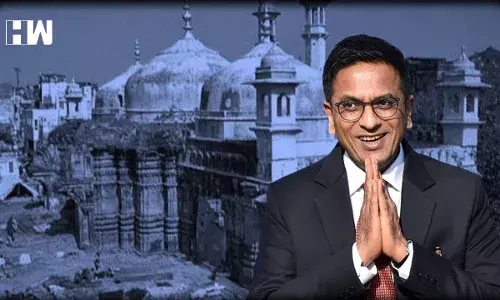New Delhi: The Supreme Court today questioned the Varanasi authorities on the location of the ‘Shivling’ (Lord Shiva’s emblem) within Gyanvapi mosque in Uttar Pradesh.
The Supreme Court asked the administration a question during the hearing of a petition filed by the mosque committee, which requested that the authorities in Varanasi halt surveying the mosque complex.
“Where exactly was the ‘Shivling’ found?” Justice DY Chandrachud said.
“We haven’t received the report,” said Solicitor General Tushar Mehta, who represented the Uttar Pradesh government, and requested time until tomorrow to provide specifics.
Mr Mehta said the place where the ‘Shivling’ was found was sealed to avoid any law and order issues if someone who came to offer namaz (prayers) touched it with their feet. The ‘Shivling’ was said to be found in a pond, used for “wazoo” or purification rituals before namaz.
The Supreme Court then ordered the Varanasi District Magistrate to protect the area where the ‘Shivling’ was discovered while allowing Muslims to attend namaz at the mosque.
A local court ordered it sealed yesterday, following a dramatic claim by Hindu petitioners that a “Shivling” had been discovered in a pond within the Gyanvapi masjid complex. The “Shivling” was allegedly discovered during a court-ordered filming of the mosque compound in response to a petition demanding access to a shrine behind the mosque for prayer.
The claim was refuted by Muslim petitioners, who claimed it was a “fountain, not a Shivling.”
During today’s Supreme Court hearing, Muslim petitioners questioned how the city court could order the location to be sealed since the committee that assessed the complex had not yet completed its report.
“How did the court proceed based on the submission of the other party and seal the place? Look at the way the orders are passed,” the Muslim petitioners told the Supreme Court.
Next to the famous Kashi Vishwanath temple lies the Gyanvapi mosque. Five ladies have petitioned the court to allow daily prayers in front of idols on the temple’s outer walls, as well as other “visible and unseen deities within the historic temple compound.” Once a year, the place is available for prayers.
The Varanasi Civil Court ordered a video inspection of the mosque complex, which includes three domes, underground basements, and a pond, and appointed court commissioners to conduct the inspection.
As an independent media platform, we do not take advertisements from governments and corporate houses. It is you, our readers, who have supported us on our journey to do honest and unbiased journalism. Please contribute, so that we can continue to do the same in future.

